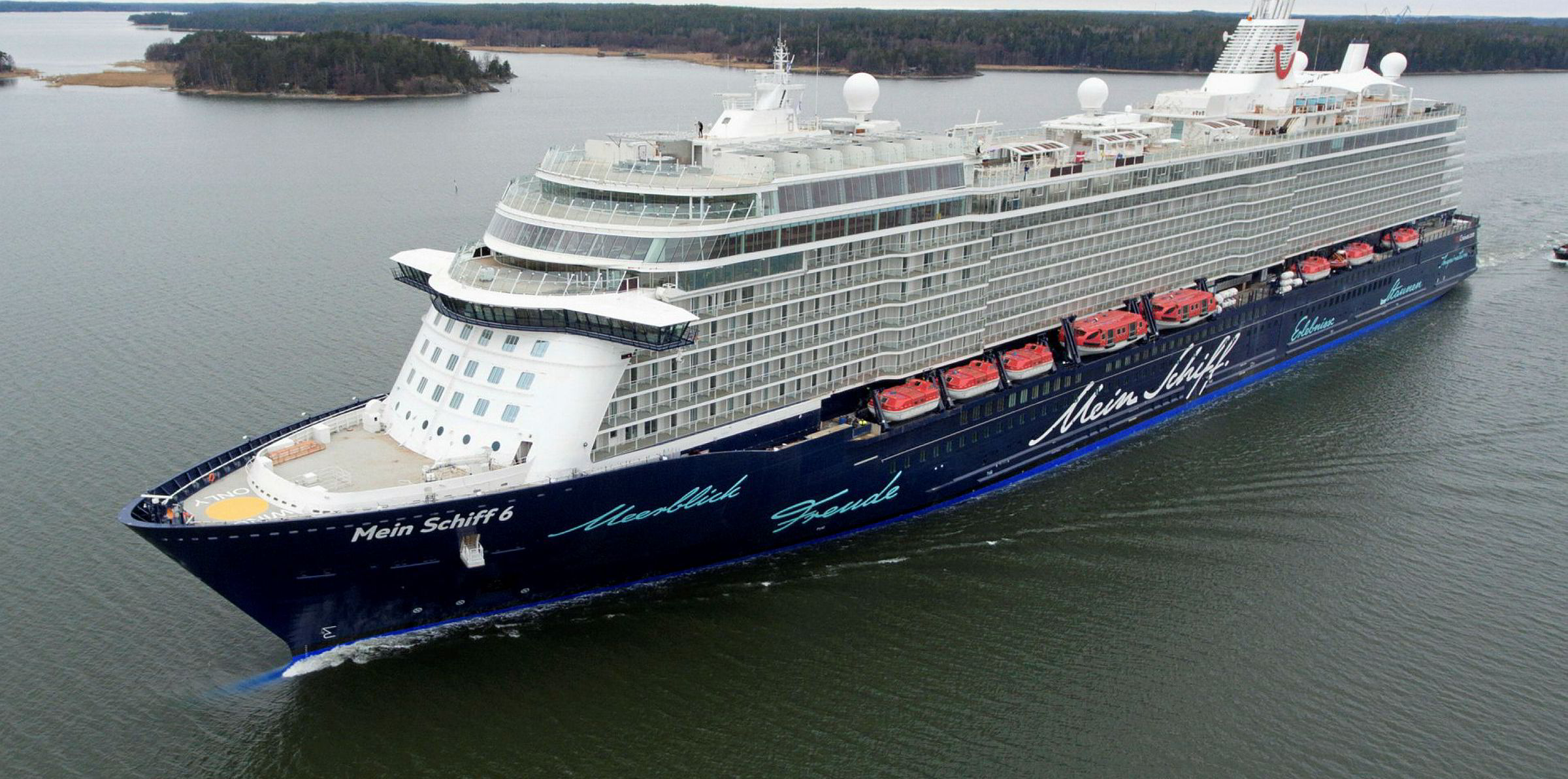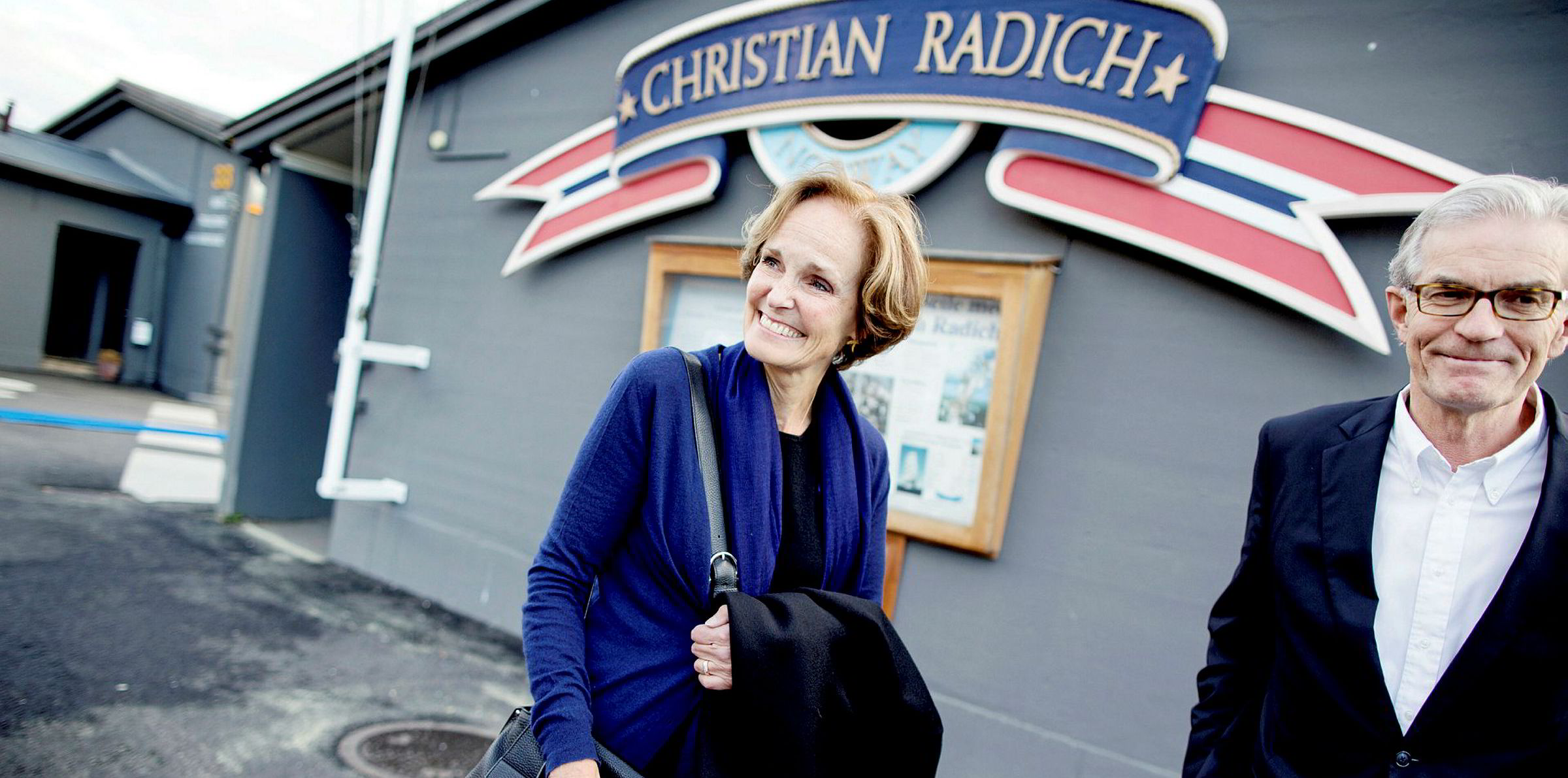German tourism and cruiseship giant TUI has revealed it was forced into taking out a €1.8bn ($1.9bn) loan to help it through the coronavirus crisis.
The operator of 18 passenger vessels said Germany's KfW Group has provided the bridging facility after the government approved it on 27 March.
The fleet had been idled that month due to the Covid-19 outbreak.
The cruiseship operation posted underlying Ebitda of €21.7m in the first quarter, down from €79.9m a year ago.
The occupancy rate for TUI Cruises in 2021 remains at a normal level, and the company will be ready to resume voyages in July, depending on state approval.
Cruiseship revenue actually increased in the quarter to €243.2m from €234.2m.
The fresh cash was "intended to cushion the unprecedented effects of the pandemic until normal business operations can be resumed", TUI said.
On 8 April, the company's existing banks also approved the facility. They already provide €1.75bn to the company.
As of 10 May, TUI had liquidity of about €2.1bn.
The idea is to pay off the borrowing quickly.
But the group is also targeting a permanent 30% cut in costs. This will mean 8,000 jobs lost either through redundancies or a freeze on recruitment.
A different landscape
"TUI should emerge from the crisis stronger. But it will be a different TUI and it will find a different market environment than before the pandemic," chief executive Friedrich Joussen.
"This will require cuts: in investments, in costs, in our size and our presence around the world. We must be leaner than before, more efficient, faster and more digital."
TUI also offered a glimpse into its plans for restarting cruises.
When passengers board they will have to fill in health questionnaires.
They and crew will also be screened with temperature scans and subject to staggered boarding times.
Capacity will be reduced to a maximum of 1,000 people until 31 August and there will be no self-service restaurants.
Covid-19 tests will be available on board, with additional health staff employed.




